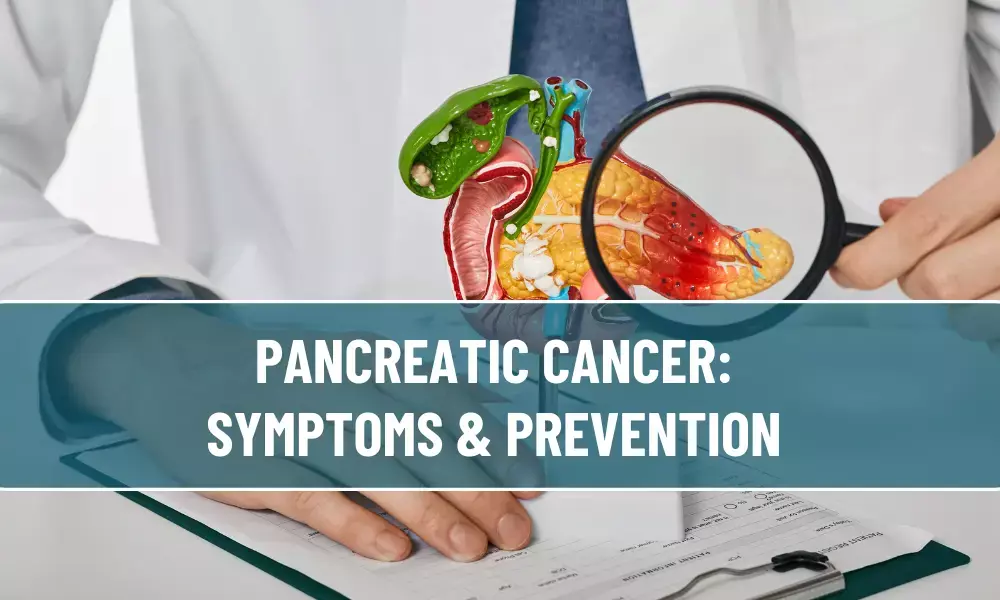November is regarded as Pancreatic Cancer Awareness Month, and the third Thursday of this month is observed as Pancreatic Cancer Day to raise awareness about this disease among the public.
Table of Content
-
What Is Pancreatic Cancer?
-
What Causes Pancreatic Cancer?
-
Signs and Symptoms
-
Preventive Measures
What Is Pancreatic Cancer?
The pancreas is a gland located deep in our abdomen, between the stomach and the spine. It is responsible for generating enzymes helpful in digestion and hormones that regulate blood sugar levels.
Pancreatic cancer begins in the pancreas when the cells in and around the pancreas grow and multiply abnormally and form a tumour. These tumours may be benign; that is, they do not spread to other parts of the body. In some cases, the tumours are malignant, meaning they can spread to other tissues or organs.
Pancreatic cancer often spreads to the abdominal wall, liver, lungs, bones, and/or lymph nodes and is a life-threatening condition. It is regarded as one of the toughest cancers as it is difficult to detect it until advanced stages of development.
This is because the pancreas is located deep in our abdomen, making it difficult for doctors to see or feel the tumor during a physical exam, delaying the diagnosis further.
What Causes Pancreatic Cancer?
Certain risk factors may cause pancreatic cancer in individuals. These may include:
-
Changes in DNA may cause this cancer.
-
Exposure to certain chemicals, like petrochemicals and pesticides.
-
Smoking cigarettes, or using other forms of tobacco.
-
Obesity, especially when there is extra weight around the waist.
-
Sudden onset of diabetes could be an early warning sign of pancreatic cancer.
-
Smoking, excessive consumption of alcohol, and unhealthy eating habits like high intake of processed or red meat
However, this does not mean that everyone with these risk factors may get pancreatic cancer or that everyone who may get pancreatic cancer has one or more of these.
Signs and Symptoms
Pancreatic cancer symptoms are not always obvious and usually develop over time. This cancer may cause vague, unexplained symptoms, such as:
-
Sudden weight loss
-
Loss of appetite and Nausea
-
Fatigue and weakness
-
Pain, usually in the abdomen or back
-
Recent onset of diabetes or worsening of existing diabetes
-
Jaundice with or without itching
-
Changes in stool
A person with advanced pancreatic cancer may also have fluid or blood clots in the abdomen.
Preventive Measures
This cancer cannot be prevented totally. However, there are certain things through which one can reduce the chances of developing this cancer.
-
Avoid smoking and consuming alcohol
-
Including lots of fiber-rich vegetables and fruits
-
Lower intake of sugary food, red meat, and processed food
-
Maintain a healthy weight and practice an active lifestyle
-
Limit exposure to harmful chemicals, such as petrochemicals, pesticides, and asbestos
Lastly, in the case of any pancreatic cancer diagnosis in a close family, it is advised to undertake genetic testing to check for inherited mutation.





